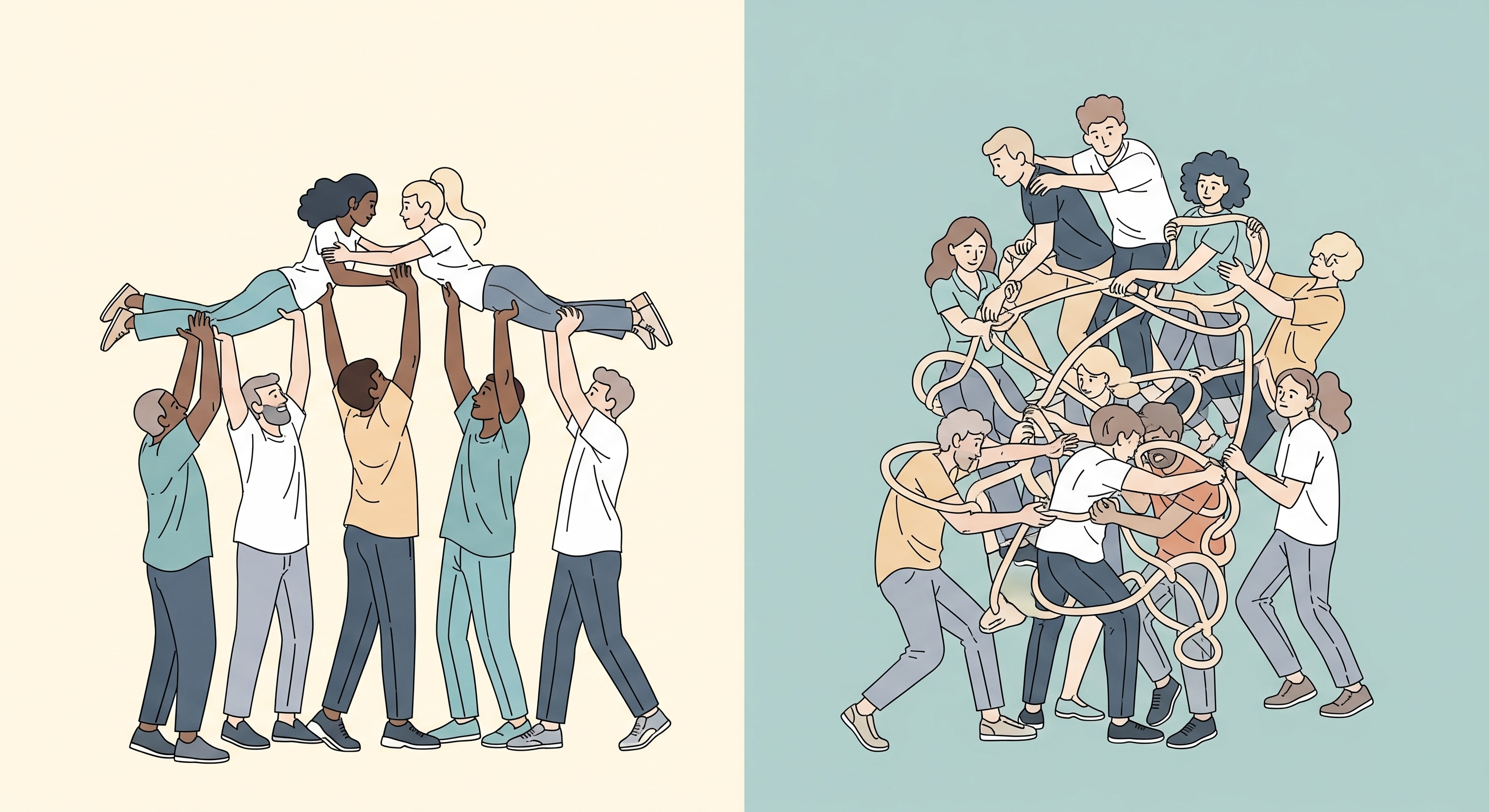Culture: Not Just For Yogurt
Culture isn’t just for yogurt and sourdough. It’s also for teams. Or really, any organization, formal or informal. There’s a lot that goes into culture. What your goals are. How you incentivize. How you teach. How you do things, in good times, and in bad. And perhaps most importantly, how you handle uncertainty.
Overhead on the internet:
Your “Company Culture” is more about what happens when somebody on a team says “I don’t know” than what team building events you plan.
That right there. That’s what culture really is. It’s not the perks you have or the benefits you provide. It’s not your mission or your goal. It’s not even what you do when things get hard. It’s what you do when you’re faced with uncertainty. It’s what happens when someone on your team is asked a hard question and they say “I don’t know”, or worse, make a mistake.
The first thing to realize is that if people feel confident enough to say “I don’t know” you’re at least on the right path. You’re getting honest answers, which is a pre-requisite for having the kind of culture that helps people do their best. It’s not the best place to be, but it could be a lot worse.
Worse would be where, instead of saying “I don’t know”, the answer is defensive, makes excuses, or even worse, redirects blame. Worse is no accountability and everyone putting themselves first. At the expense of their co-workers, their teams, and of whatever it is they’re supposed to be doing. Worse can be paraphrased as “I don’t have to be good, I just have to make sure someone else is worse.”

On the other hand, high performing teams, the ones with the best cultures, don’t just say “I don’t know.” They continue from there. They finish the sentence with something along the lines of “and we’re going to do X, Y, and Z” to find out.” That’s not only being accountable for where they are, that’s taking ownership for fixing the issue and moving forward. To the benefit of their co-workers, their teams, and whatever it is they’re supposed to be doing. The best can be paraphrased as “A rising tide lifts all boats.”
Assuming that’s what you’re aiming for, you might need to make some changes. Changing culture is hard. It’s been said that
In the battle between change and culture, culture almost always wins.
One of the biggest parts of building that modeling honesty and trust. One easy way to do that is when someone is honest enough to say “I don’t know”, don’t just jump in and say what you want or need, or start being directive. Instead. trust them to finish the sentence with both an explanation and next steps. Offer help. Help via guidance. Help with resources. Help with the time and space to take those next steps.
While doing it yourself might get you those answers sooner, it comes with a very high cost. You don’t get done what you were supposed to be doing. The next time this sort of situation comes up (and it will) the same thing is going to happen. The only thing people have learned is that you don’t trust them.
If instead, you wait for them to finish the sentence and then make sure they’ve got what they need to find the answer you still get to do your job. And next time, instead of them saying “I don’t know.”, they might say something like “It took a bit more work than I planned, but here’s the answer to your question.” And even if they don’t get it that time. They might get it the time after that. Or the one after that. What they will do is keep getting closer.
That’s a rising tide lifting all boats. That’s a better culture. And, you’ll have more fun at your team-building events. Because the team is trying to lift each other up, not keep each other down.
